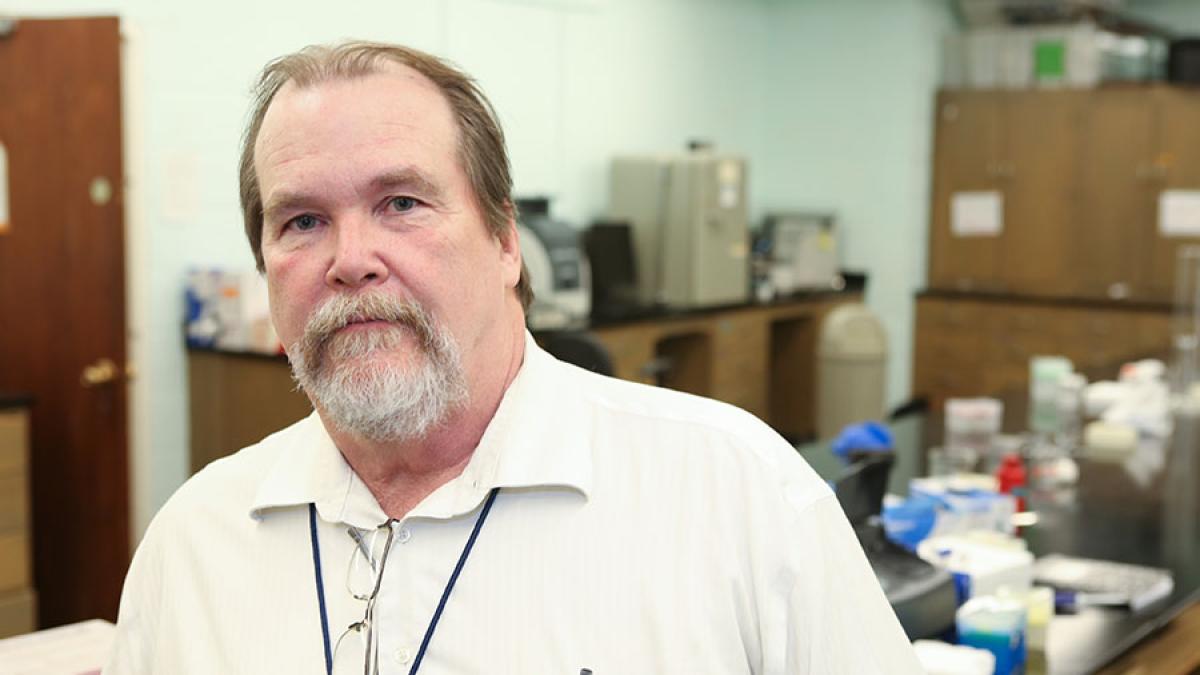Professor Fang’s research interests include organismal and ecosystem resilience and responses to anthropogenic changes, including urbanization, climate warming, and biological invasions.
Biology, BS/Ecology and Society, MS
In just five years you can earn your bachelor’s in biology and master’s in ecology and society from Pace University and the University for Peace in Costa Rica. Launch your career with this accelerated and immersive degree program that will put you directly in the field studying our world’s most diverse ecological environments.

New York City
150
Fall, Spring
Yes
Yes
Engage in Ecological Problem Solving in Costa Rica
If you’re passionate about developing real-world solutions to today’s ecological challenges, this is your opportunity to make a difference. As part of this accelerated dual-degree program, a partnership between Pace University and the University for Peace, you’ll build a strong foundation in ecological theory before heading to Costa Rica for hands-on, professional-level research.
As a biology major at Pace, you’ll gain extensive research experience—conducting independent laboratory studies, collaborating with faculty on published research, and engaging with local organizations offering internships and research opportunities. You’ll have access to cutting-edge laboratories and resources normally only found at large research institutions, including a state-of-the-art microscopic facility.
For your graduate thesis in the MS in Ecology and Society program, you’ll conduct field research throughout Costa Rica, working with diverse communities and projects. You’ll be mentored by faculty from around the world, learning from experts committed to sustainable practices across diverse contexts. Through this immersive experience, you’ll build an international network that will help launch your career in ecological research and sustainable development.
projected job growth in ecology-related fields over the next decade (Source: U.S. Bureau of Labor Statistics)
courses in UPeace graduate program taught in English
Curriculum
As an undergrad, you’ll have the opportunity to conduct independent laboratory research at a level typically reserved for graduate students using resources normally only found at large research institutions.
In the graduate portion of the program, you’ll work with a faculty mentor on a professional-level thesis, which includes immersive, on-location study in unique field sites such as the Osa Peninsula, the Monteverde Cloud Forest region in Puntarenas, the Maquenque National Refuge in the Northern Zone, the numerous managed forests within driving distance of the University, and the campus’s own forest.
View Ecology and Society, MS Curriculum
Take Courses Like…
- Ecology (Pace)
- Urban Ecology (Pace)
- Forest, Forestry, and Poverty (UPeace)
- Tropical Ecosystem Assessment (UPeace)
Careers
This unique joint degree, coupled with the international connections you’ll make, will open a world of possibilities for your career in growing and in-demand fields. Opportunities include jobs at the local, national, and international levels in the public and private sectors, as well as the option to continue study in a PhD program, law school, or medical school.
As a Pace student, you’ll have the opportunity to connect with our robust career services team to develop a career plan that best fits your goals.
Our graduates are prepared for jobs like:
- Ecological scientists
- Forester
- Conservation scientist
- Natural resource and wildlife manager
- Recreation manager
- Environmental assessment scientist
- Sustainability scientist
- City planner
- Public school or college science educator
Featured Faculty
Professor Eaton’s research focuses on how climate change-induced extreme events negatively influence the soil ecosystems in Costa Rica.
Professor Grigione’s research focuses on understanding how ecological and manmade elements influence home range size and location for certain species.
Admission and Financial Aid
Ready to take charge of your future? Pace is with you every step of the way, providing a world class education and the skills your industry will be looking for far into the future.
-
- November 1: Early Decision
- November 15: Early Action I
- December 1: Early Action II
- February 15: Regular Decision
Explore required documents and admission decision dates for first-year, transfer, and international students.
-
Ready to apply? Begin your application process.
-
Understanding the value of a degree is essential, especially in terms of return on investment (ROI). According to The Georgetown University Center on Education and the Workforce, Pace University is in the top 6% of U.S. colleges that provide the best return on tuition investment.
For the 2024–2025 academic year, full-time undergraduate tuition is $51,382. However, many students pay significantly less due to our generous merit scholarships, which offer up to $33,000 annually, as well as need-based scholarships, grants, on-campus employment opportunities, and loans. Pace is more affordable than you think. Financial assistance can come from many places, including scholarships, grants, on-campus employment, and loans.
Merit Scholarship Estimator
Estimate your merit scholarship eligibility based on your academic achievements to see how much merit aid you may receive.
Net Price Calculator
Use our Net Price Calculator to estimate your annual education costs and financial aid package.
-
Connect with our dedicated admission counselors who are here to support you every step of the way. Schedule a one-on-one appointment to discuss your goals, application questions, and any other information you need to make an informed decision about your future at Pace.
Did You Know?
Contact Us
Admission Contact
Office of Undergraduate Admission
Phone: (212) 346-1323
Email: undergradadmission@pace.edu
Departmental Contact
Bill Eaton, PhD
Email: weaton@pace.edu


